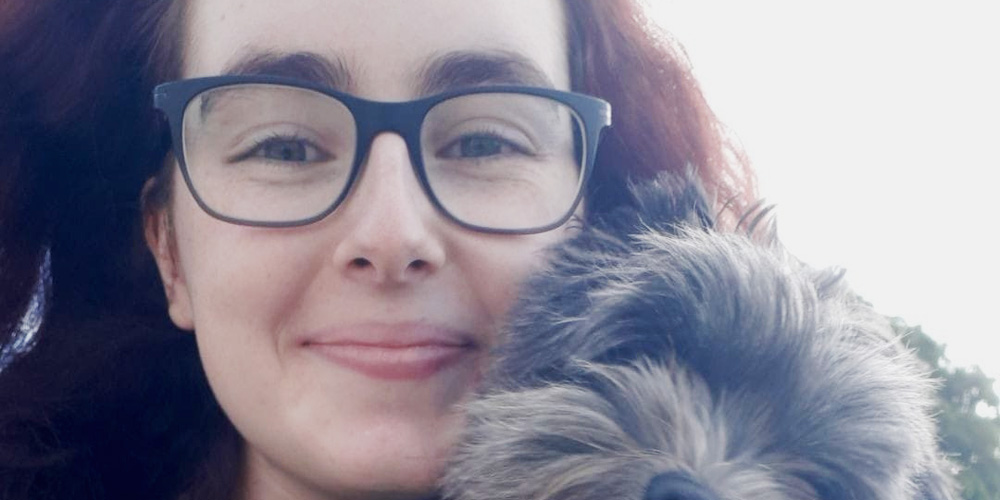
Since 2015, at least several dozen New Brunswickers have presented with symptoms of a neurological disease of unknown origin. At 20 years old, Gabrielle Cormier is among the youngest.
“I feel like in the media… it never portrays… how fucking shitty this is,” she said in a video diary, a clip of which was shown on The Fifth Estate last fall. Host Mark Kelley travelled to Dalhousie Junction, NB, to speak with her, and their interview was threaded throughout the November 4 episode.
Two months later, however, when CANADALAND reached out for our own interview with Cormier, we learned that that was no longer possible.
“It physically hurts her to have conversations sometimes,” her stepmother says about her worsening dementia-like symptoms. Stacie Quigley Cormier, along with Gabrielle’s father, now fields media on her behalf.
On this week’s CANADALAND, we speak with Quigley Cormier and The Guardian‘s Leyland Cecco about just what the heck is going on in New Brunswick — and why the provincial government appears strangely reluctant to get to the bottom of it:
Here are slightly edited excerpts from the episode, of what Stacie Quigley Cormier had to say about the gradually deteriorating condition of her stepdaughter, whose symptoms first appeared about three years ago…
On Gabrielle dropping out of university in 2020:
She just couldn’t keep up with with her classes. She couldn’t do the work. On one of her exams, she wrote, “I’ll see you next year” to her professor. And this is someone who has always had a dream of going into medicine. She was the salutatorian of her graduating class, loved sciences, is very much an intellectual.
On Gabrielle’s current cognitive capacity:
At the time of her last testing, which would have been a few months ago, she was just bordering on moderate dementia. So for Gabrielle, what that looks like is, if I say, “Hi, I haven’t seen you yet,” she says, “Oh, I don’t remember.” If she has a conversation with someone, she’s not sure really what she said all the time.
Mind you, very much like other people living with symptoms of dementia, she can share stories about other situations. She can talk at length about when she was figure skating and different fun things that she used to do. But we’ve taken over helping her make sure that she gets her medication, making sure that we’re the ones doing the interviews now, because it’s hard for her to remember the timeline or it takes a lot of work to keep track of conversations. It physically hurts her to have conversations sometimes.
If we’re giving her information, we have to just make sure that we’re not giving her too much at one time. For example, with meals, if we say, “I’m going to go make supper. Would you like spaghetti or a hamburger?” then that might be too much information. And so we’ll say, “It’s supper time. Would you like spaghetti?” So we just try to keep it really simple.
On prioritizing experiences for Gabrielle that she might not be able to appreciate for much longer:
We just said, “Okay, what do you want to do with your time, and let’s see what we can accomplish?” And so some of these things that she wants to do, Covid makes it challenging. She wants to go see a Broadway play. She wants to go to Disney. She wants to see Green Day in concert. That’s probably her number one, because Green Day is her most favourite band ever. So hey, Green Day if you’re listening! So that’s right up top there. But she wants to do things like get a tattoo and dye her hair.
On having low expectations for the forthcoming provincial report and the government’s reluctance to investigate possible environmental causes:
We anticipate that the government is gonna come out and say that the panel has determined that everyone’s illness that’s been investigated has a known cause, or they might not feel like it’s something new. Now, if that does end up happening, then the thing is is that the question of “why” still remains, because a 20-year-old does not typically get symptoms of dementia.
There’s an ethical obligation here when you have scientists and medical professionals and now the whistleblower — thank you to whoever that is, and I hope more people come forward because we need you — they’re raising questions and saying that there’s something wrong going on here, there’s something causing this, and they suspect that it’s environmental, also.
But regardless of what they say, it’s not typical. The presentation is not typical. Why is this happening? And we may not find out why exactly right now, but we’d like for the government to have enough respect and consideration for the residents of their province to look into it.
Photo of Gabrielle Cormier from her Facebook profile.